Language Acquisition
At DUCKS Dulwich College Beijing, we believe in the power of language and its role in creating a rich multicultural community. Parents are encouraged to actively support their children’s language learning journey by engaging them in their home language as often as possible. Not only does this strengthen language acquisition, as students make strong connections between their home language and new languages, but it also helps foster a sense of identity and cultural pride. By embracing their home language while learning new languages, children gain valuable opportunities to explore cultures, share ideas, and exercise high-level thinking skills to become truly Worldwise.
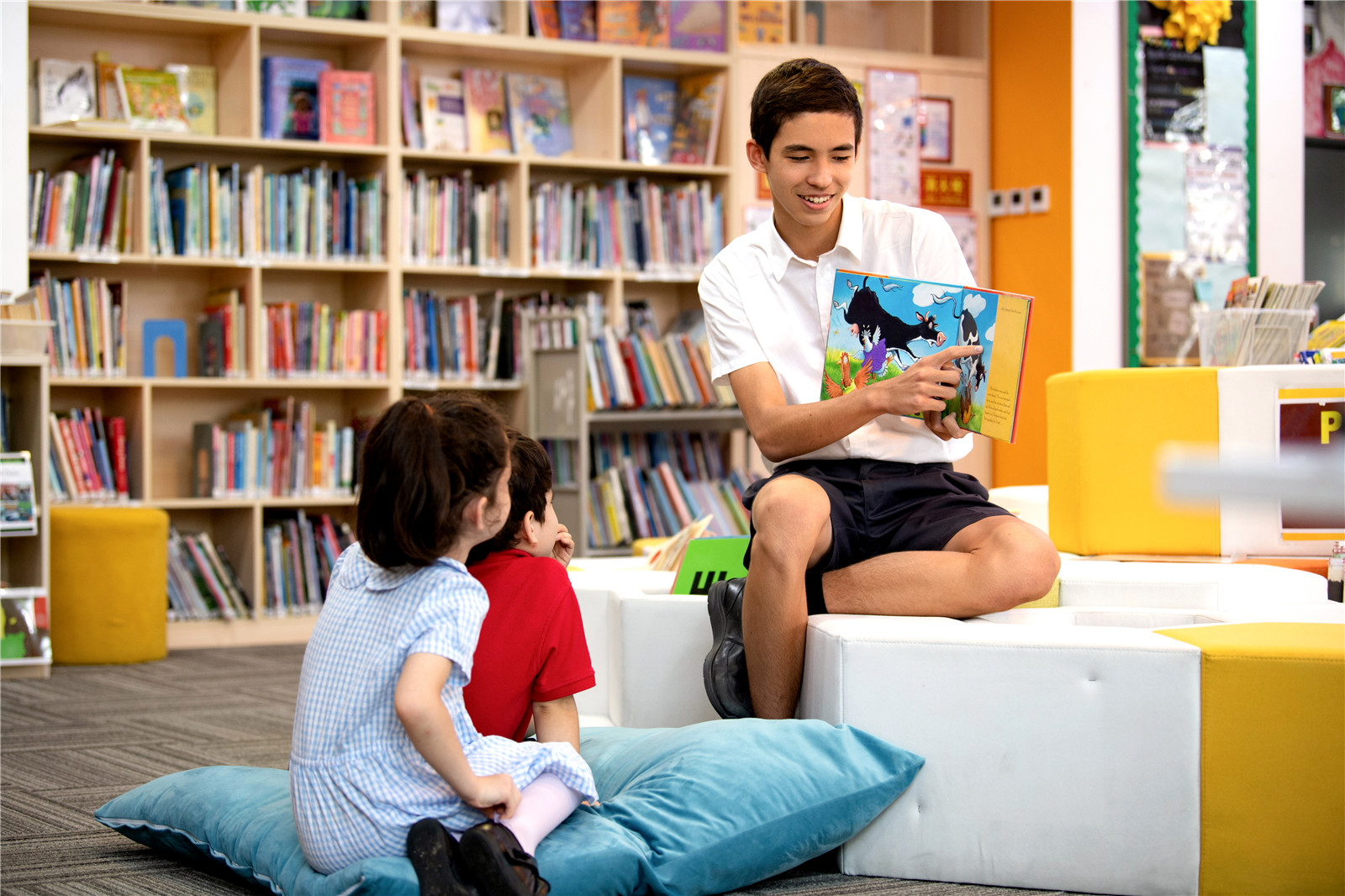
Dual Language Approach
Part of establishing a secure setting that allows our students to feel comfortable is our dual language approach, which enhances our students’ communication skills in both English and Mandarin. The dual language environment at DUCKS allows students to be immersed themselves in the translanguaging learning experience. Translanguaging describes the pedagogical practise of multilinguals using more than one language to utilise various linguistics resources to maximise communication potential.
Research from the Center for Applied Linguistics (2022) highlighted the numerous benefits of this language approach, which includes multilingualism and multiliteracy, academic achievement, and cross-cultural competence in students. By strengthening the learners’ cognitive, problem-solving, and communications skills, our students enhance their multicultural awareness and sense of identity. The dual language approach is therefore at the core of language learning in the DUCKS, guided by our College’s commitment to international-mindedness, diversity, and inclusion.
Within the classrooms, our Dual Language teachers skilfully navigate between Chinese and English, helping students to make connections between their home language and the language/s that they are learning. By doing so, we ensure that their new vocabulary and structures are retained. While teachers are very intentional in their use of language, the students seem oblivious to the incredible learning that is already taking place and primarily focus on the activity at hand.
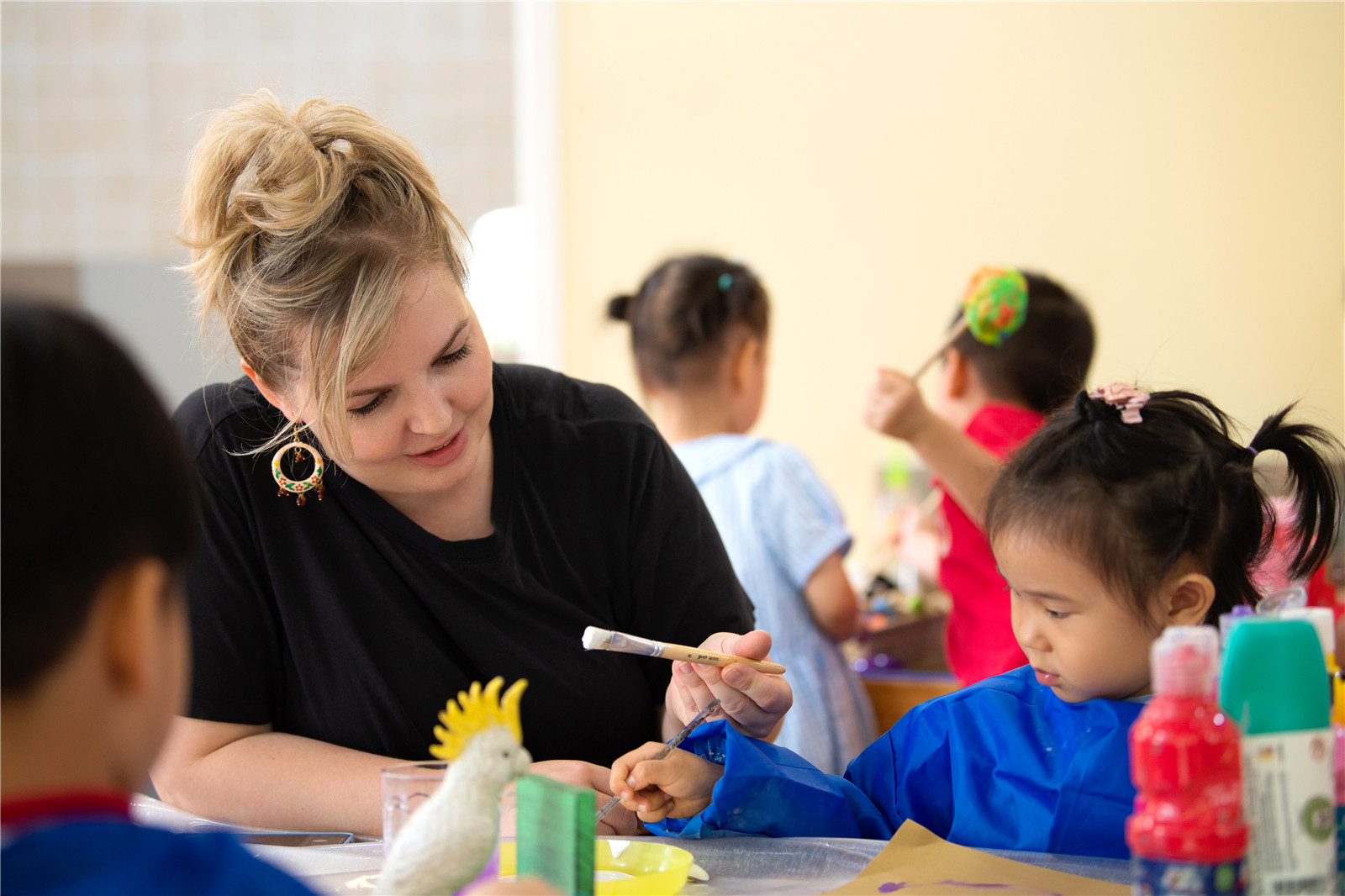
English as an Additional Language
Our teaching strategy aims to enable students to experience a smooth and continuous learning curve throughout DUCKS.
Speaking and Listening is a key focus of the DUCKS curriculum. Teachers engage students in various types of activities inside and outside the classroom. They offer a variety of learning experiences to develop the learner’s confidence and overcome any fear of making mistakes. Teachers tune in to the children’s interests to provide exciting and stimulating opportunities that involve using language to establish meaning. Child-initiated learning as well as songs and games feature strongly in Foundation Stage. We can capture the children’s growing range of talk by using technology. Building on their speaking skills each year means by Key Stage One, the children are capable of producing their own Seesaw blog audio and video discussing their learning. In a similar way, the EAL teachers create weekly Word and Phrase of the Week videos to help parents learn alongside their children at home.
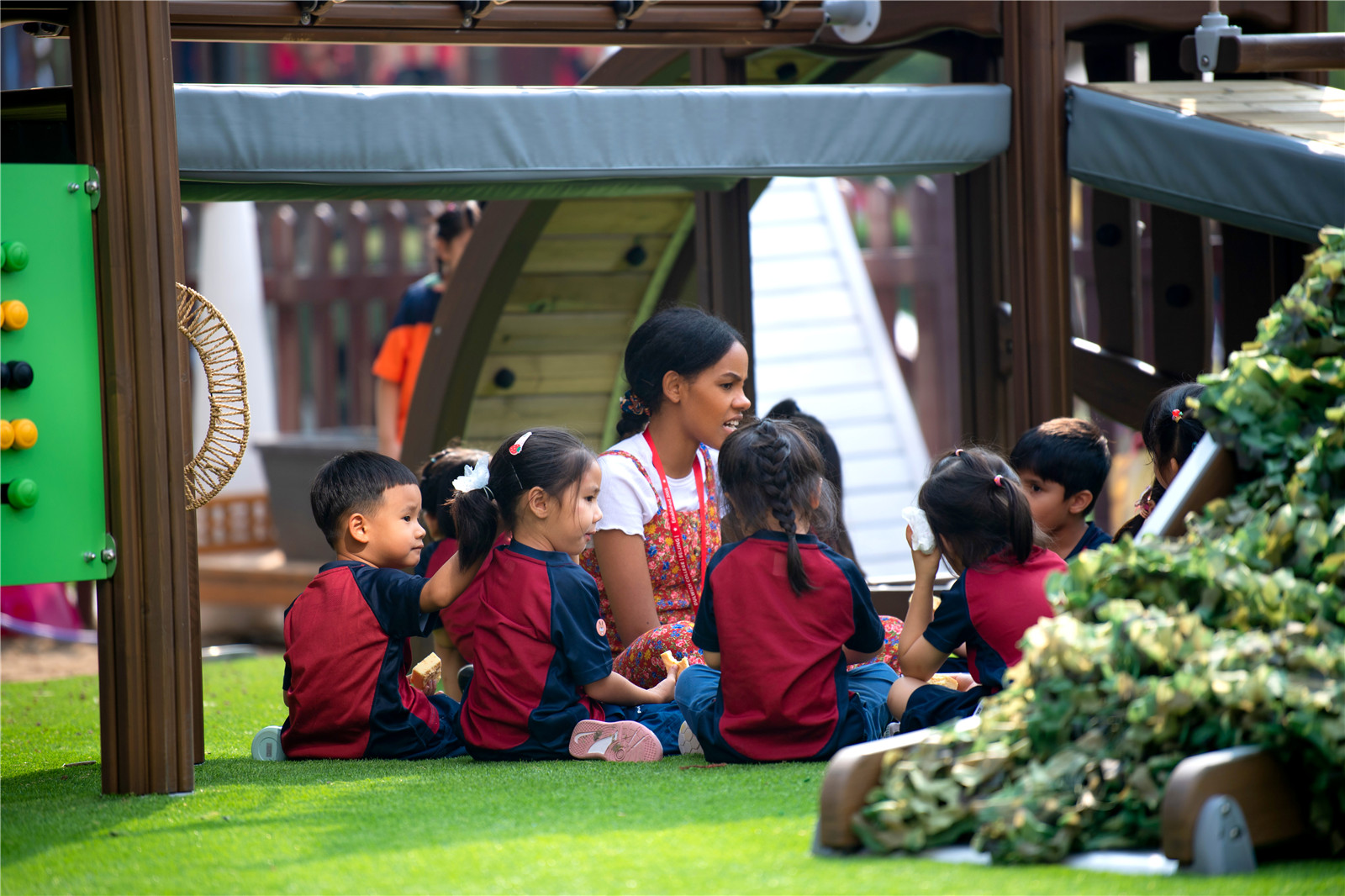
To foster creative writing skills, we employ Talk For Writing. This multi-sensory approach to teaching utilises actions and pictures to help students recall the words of the text and frequently practise it orally until they have mastered it. Developing their own ‘maps’ of the text further help internalise the patterned language of the specific genre. Later, this strategy helps them feel empowered to write their own stories and texts and the language they learnt often appears in their own versions.
We aim to inspire a love of reading through reading for pleasure and offering books in English, Mandarin and Korean both in classrooms and in the library, catering to diverse interests. Through individual, small group and whole class reading experiences, students practise reading skills in different ways. Our Phonics programme is a systematic and structured way that children learn to crack the code for reading.
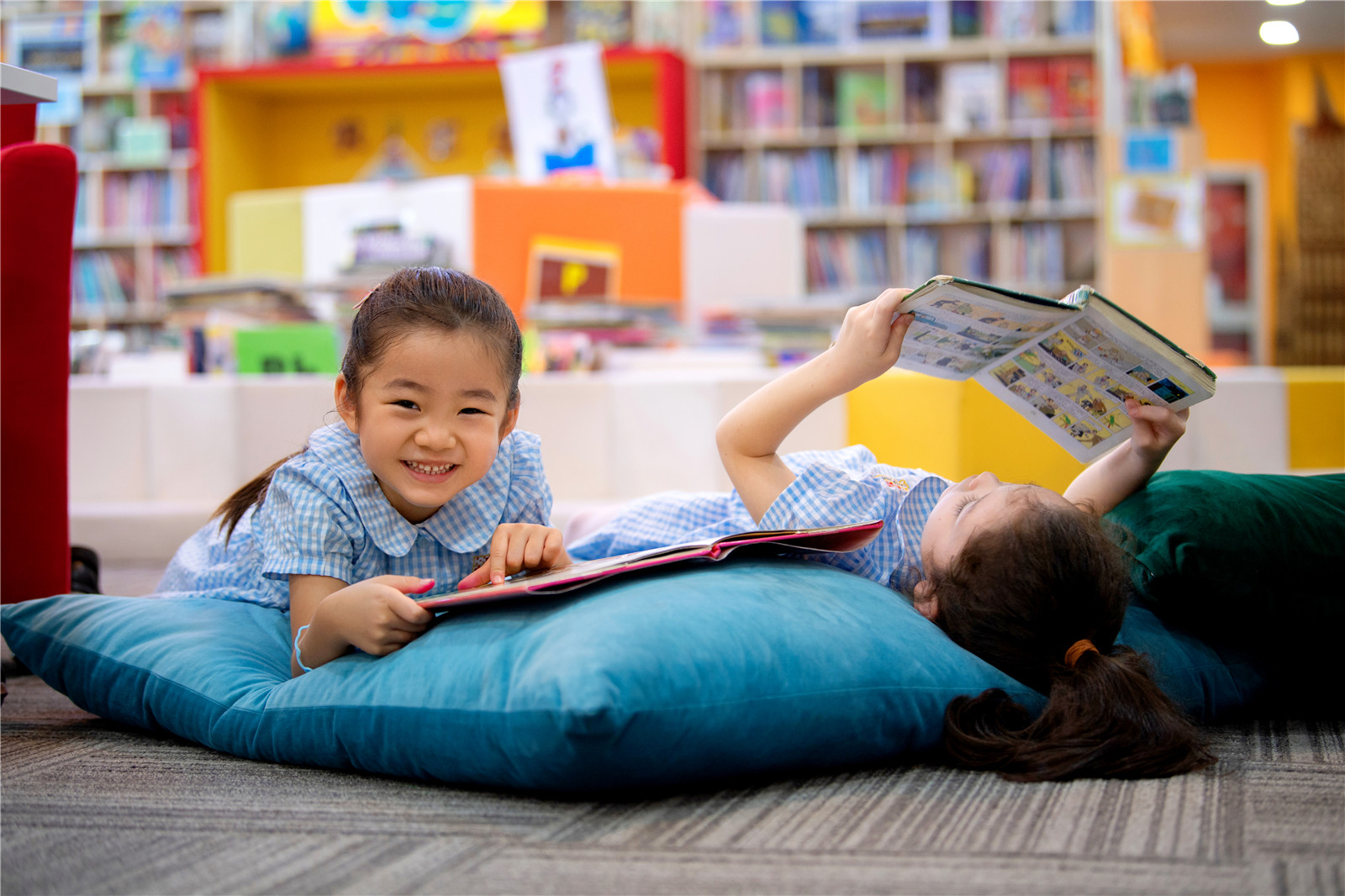
We offer comprehensive support to students who are new or in the early stages of learning English. Additional teachers provide in-class assistance, and the classroom environment also acts as a third teacher by providing word banks and examples of the language in use. The EAL team carefully observes, plans and delivers targeted sessions to enable students to grasp the words and structures needed for the curriculum. Previewing and reviewing content aids those students to have multiple chances to demonstrate their learning. The EAL teachers will follow the students’ learning journey closely, identifying barriers and obstacles and providing the appropriate assistance to keep trying and ultimately, succeed in their English. For more abstract concepts, such as Unit of Investigation, the EAL teachers will use videos and discussion to ensure translanguaging is at the heart of the learning.
Our ultimate goal is for students to develop a wide vocabulary and the ability to speak in sentences by the time they leave DUCKS. Ms Emily Laws, EAL coordinator, observes “how embedded and powerful translanguaging and peer support are in DUCKS”. She shares that her students no longer systematically come to her for vocabulary, highlighting “they first ask each other and usually manage to work out the words between them, using their home language and exchanging ideas”. The students can use language to work independently and collaboratively. They successfully navigate all types of activities from whole class discussions to individual presentations.
Mandarin learning
Mandarin is a fundamental part of our students’ development. For Mandarin-native students, it develops their cognitive and critical thinking skills; for non-native students, it fosters their self-awareness and cultural identity by learning more about their host country’s culture.
Our Mandarin programme is led by our Dual Language Teachers and additional Chinese teachers and boasts a curriculum designed to engage and stimulate our DUCKS student body that ranges from complete beginners to native speakers. In line with our student-centred approach to learning, the programme is organised around the following strands: Speaking, Listening, Reading, Writing, and Culture as Chinese culture is considered key to students’ understanding, given the richness and diversity of our unique community and context.
In Foundation Stage, Mandarin learning is taught in whole-class groups and is predominantly filled with fun and creativity. Our young students practice Mandarin listening and speaking while learning the culture through picture book stories, nursery rhymes, songs, games, handicrafts, and many more inquiry-based learning activities.
As students progress to Key Stage One, Mandarin learning expands to include both Academic Mandarin and Life Skills Mandarin taught in differentiated groups. While Academic Mandarin aims to strengthen the students’ language foundations and help them get ready for further academic learning in Junior School, Life Skills Mandarin aims to use their skills in practical settings such as discussions, debates, presentations, collaborative writing, etc.
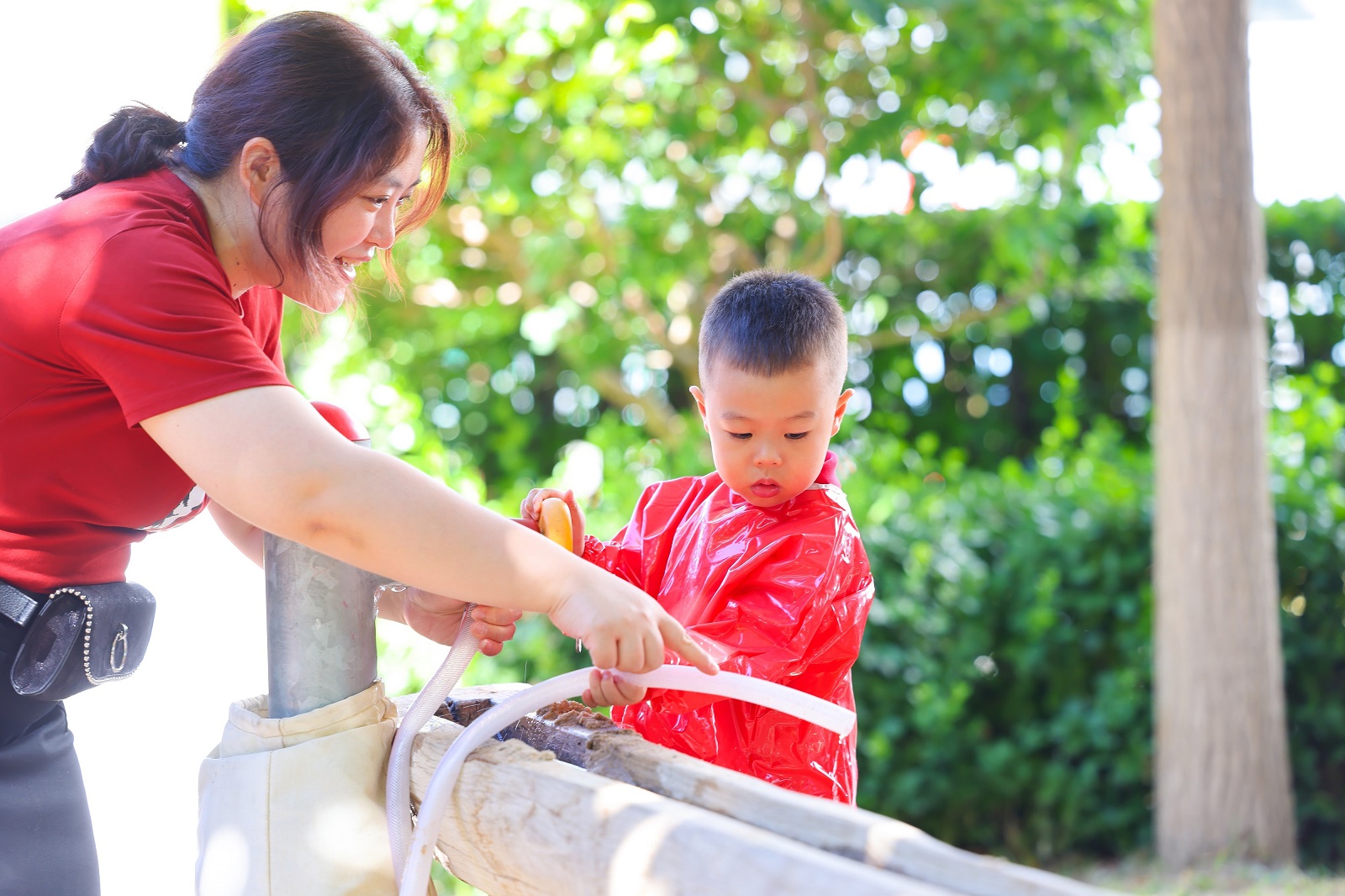
At DUCKS, we are dedicated to providing an enriching language learning experience that empowers students to become confident communicators in both English and Mandarin. Our holistic approach, supported by skilled teachers and a vibrant multicultural environment, ensures that language acquisition is not only effective but also enjoyable. Together, we strive to unlock the full potential of our students and equip them with the linguistic tools they need to navigate an interconnected world.








